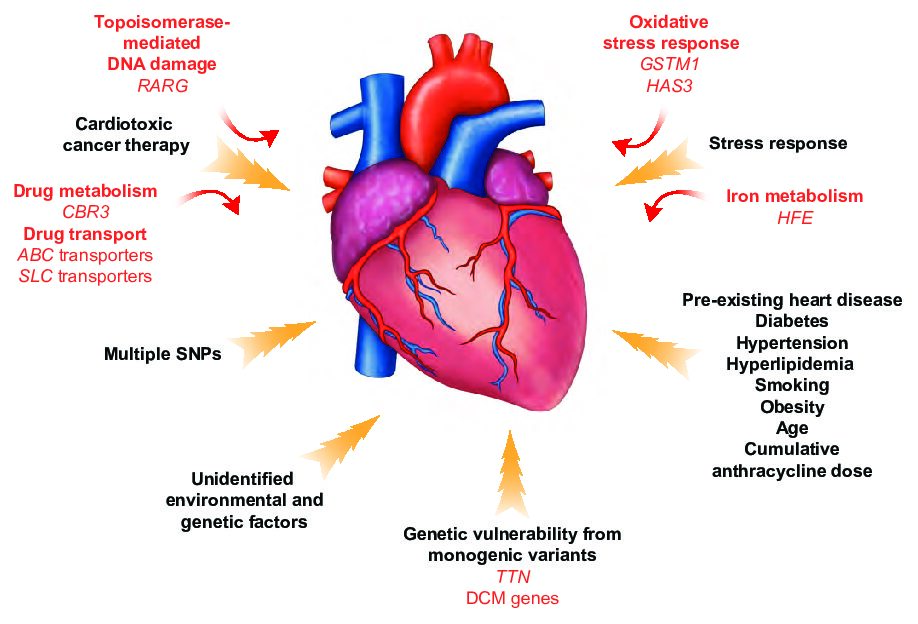
Created with BioRender.com
MOLECULAR AND GENETIC BASIS OF HEART FAILURE
Heart failure is a leading cause of morbidity and mortality. More than 6.5 million adults in the United States suffer from heart failure and 1 year mortality of patients with heart failure is estimated to be 20%. We investigate molecular and genetic basis of cardiomyopathy, which is a heart muscle disease responsible for heart failure. Ultimately, we aim to develop novel treatment strategies for patients with heart failure.

Genomic discovery and mechanistic elucidation of genetic cardiomyopathy
We perform genomic and transcriptomic analysis of cardiac tissues to identify and better understand genes and signaling pathways responsible for heart failure. We additionally utilize genetic editing tools to engineer human induced pluripotent stem cell-derived cardiomyocytes and experimental mouse model systems to study heart failure biology and identify ways to cure the disease.
Molecular basis of cancer therapy-induced cardiomyopathy
The increasing number of cancer survivors has highlighted the importance of cardiotoxic side effects, such as CCM. Risk factors like high-dose anthracyclines, radiation, smoking, diabetes, and hypertension contribute to CCM1, but do not fully explain why only some patients develop cardiovascular sequelae. We investigate molecular and cellular responses of heart tissues to cardiotoxic cancer therapies, providing insights into CCM pathogenesis and potential therapeutic targets.

Kim et al., J Mol Cardiol 2022